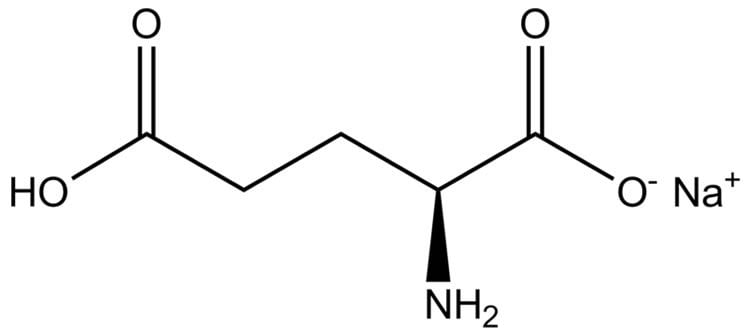Summary: A new study reveals resistance exercise may help improve memory and motor problems associated with the flavor enhancer monosodium glutamate.
Source: The Psychological Society.
A study in rats, published in Experimental Physiology, showed that resistance exercise recovers memory and motor impairment caused by the flavour enhancer monosodium glutamate.
Monosodium glutamate (MSG) is an additive that mimics umami flavour, the fifth taste aside from sweet, sour, salty and bitter. Some studies have shown MSG to have adverse effects in humans, making it important to understand how it works in the body. Giving MSG to new-born rats has previously been shown to cause motor and memory impairment.
The team of researchers at the Federal University of Santa Maria in Brazil gave the experimental group of new-born rats a dose of MSG. This dose is not comparable to the dose humans eat.
Of the rats that were given MSG, half began a resistance exercise regimen at two months of age. The exercise consisted of climbing a ladder at an 80 degree angle. The rats performed these exercises five times per week for seven weeks.

After resistance exercise, researchers tested the rats’ motor coordination and memory. Within the group injected with MSG, motor coordination was less impaired in both male and female rats that performed resistance exercise. Memory also improved in both male and female rats, but it was a different type of memory in the two sexes. Recognition memory improved in male rats, whereas female rats had improved location memory.
To test both types of memory, researchers present rats with two objects. To test recognition memory, one object is replaced with a new one. To test location memory, one object is moved to a new location.
The next question that Cristina Wayne Nogueira, lead investigator, and her team will explore is the mechanism of memory improvement.
Commenting on the study, Nogueira said: ‘This study highlights that resistance-based exercise improves cognitive deficit induced by a flavour enhancer. Our next goal is to understand how this is happening.’
Source: Julia Turan – The Psychological Society
Image Source: NeuroscienceNews.com image is in the public domain.
Original Research: Abstract for “Resistance exercise reduces memory impairment induced by monosodium glutamate in male and female rats” by Paulo Cesar Oliveira Araujo, Caroline Brandão Quines, Natália Silva Jardim, Marlon Regis Leite, and Cristina Wayne Nogueira in Experimental Physiology. Published online April 23 2017 doi:10.1113/EP086198
[cbtabs][cbtab title=”MLA”]The Psychological Society “Resistance Exercises Recover Motor and Memory Impairment Caused by Flavor Enhancer: Brain Views Immoral Acts As If They Are Impossible.” NeuroscienceNews. NeuroscienceNews, 29 April 2017.
<https://neurosciencenews.com/msg-motor-memory-recovery-6544/>.[/cbtab][cbtab title=”APA”]The Psychological Society (2017, April 29). Resistance Exercises Recover Motor and Memory Impairment Caused by Flavor Enhancer: Brain Views Immoral Acts As If They Are Impossible. NeuroscienceNew. Retrieved April 29, 2017 from https://neurosciencenews.com/msg-motor-memory-recovery-6544/[/cbtab][cbtab title=”Chicago”]The Psychological Society “Resistance Exercises Recover Motor and Memory Impairment Caused by Flavor Enhancer: Brain Views Immoral Acts As If They Are Impossible.” https://neurosciencenews.com/msg-motor-memory-recovery-6544/ (accessed April 29, 2017).[/cbtab][/cbtabs]
Abstract
Resistance exercise reduces memory impairment induced by monosodium glutamate in male and female rats
Monosodium glutamate (MSG), a flavor enhancer in diets, causes cognitive impairment in humans. Exercise has been reported to protect against impairment of memory in humans. This study investigated if resistance exercise improves the performance of male and female rats treated with MSG in tests of memory and motor coordination. Wistar rats received MSG (4g kg day−1, s.c.) from post natal day 1 to 10. At postnatal day 60, the animals started a resistance exercise protocol in an 80° inclined vertical ladder apparatus and performed it during 7 weeks. Rats performed object recognition and location memory tests. Resistance exercise reduced impairment in motor coordination of male and female rats treated with MSG. Resistance exercise was effective against the decrease in exploratory preference in the long-term recognition memory (LTM) for novel objects of male rats treated with MSG. In MSG-treated female rats, resistance exercise was effective against the decrease in exploratory preference in the novel object location test (OLT). The exploratory preference of female rats in the LTM test was similar in all groups. The short-term memory was not altered by MSG or resistance exercise in male and female rats. This study demonstrates that MSG affected in a different way memory of male and female rats. Resistance exercise was effective against the decrease in recognition for male and in location memory for female rats treated with MSG. This report demonstrates the beneficial effects of resistance exercise against the prejudice of motor condition and impairment of memory induced by MSG in male and female rats.
“Resistance exercise reduces memory impairment induced by monosodium glutamate in male and female rats” by Paulo Cesar Oliveira Araujo, Caroline Brandão Quines, Natália Silva Jardim, Marlon Regis Leite, and Cristina Wayne Nogueira in Experimental Physiology. Published online April 23 2017 doi:10.1113/EP086198






